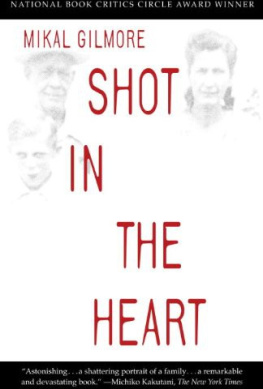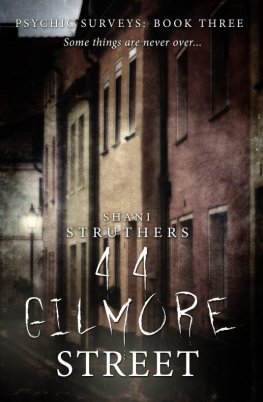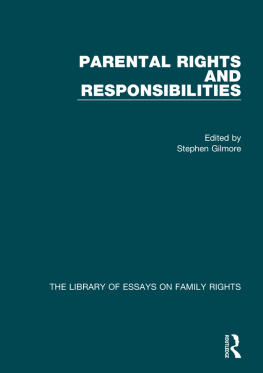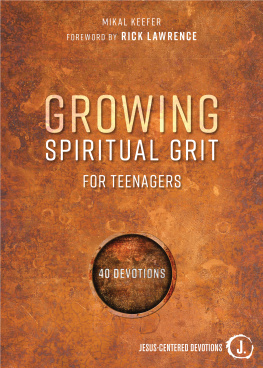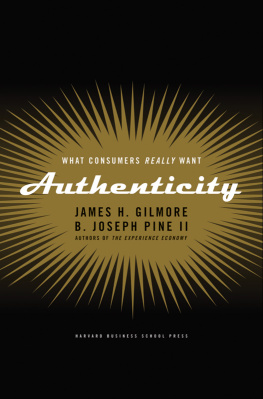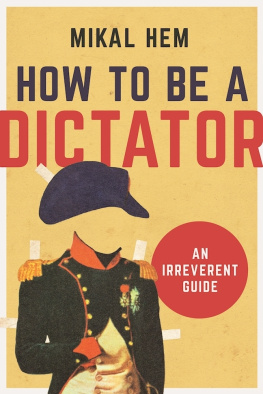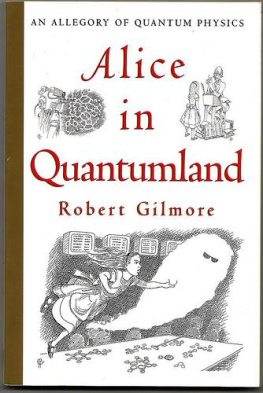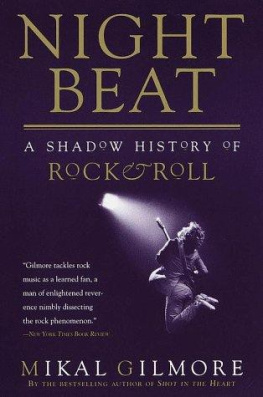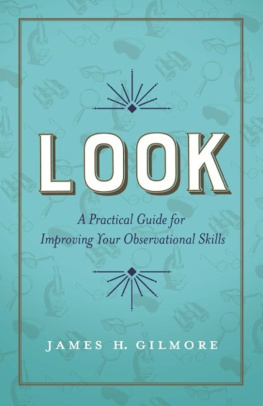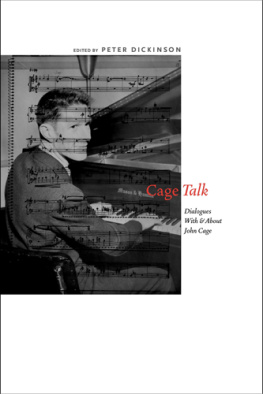Mikal Gilmore - Shot in the Heart
Here you can read online Mikal Gilmore - Shot in the Heart full text of the book (entire story) in english for free. Download pdf and epub, get meaning, cover and reviews about this ebook. publisher: Anchor, genre: Non-fiction. Description of the work, (preface) as well as reviews are available. Best literature library LitArk.com created for fans of good reading and offers a wide selection of genres:
Romance novel
Science fiction
Adventure
Detective
Science
History
Home and family
Prose
Art
Politics
Computer
Non-fiction
Religion
Business
Children
Humor
Choose a favorite category and find really read worthwhile books. Enjoy immersion in the world of imagination, feel the emotions of the characters or learn something new for yourself, make an fascinating discovery.
- Book:Shot in the Heart
- Author:
- Publisher:Anchor
- Genre:
- Rating:5 / 5
- Favourites:Add to favourites
- Your mark:
- 100
- 1
- 2
- 3
- 4
- 5
Shot in the Heart: summary, description and annotation
We offer to read an annotation, description, summary or preface (depends on what the author of the book "Shot in the Heart" wrote himself). If you haven't found the necessary information about the book — write in the comments, we will try to find it.
Shot in the Heart — read online for free the complete book (whole text) full work
Below is the text of the book, divided by pages. System saving the place of the last page read, allows you to conveniently read the book "Shot in the Heart" online for free, without having to search again every time where you left off. Put a bookmark, and you can go to the page where you finished reading at any time.
Font size:
Interval:
Bookmark:

This book is dedicated to my brother, Frank Gilmore, Jr.
He endured much to help me tell this story.

T heres something the dead are keeping back.
R OBERT F ROST
THE DREAM I HAVE DREAMED A TERRIBLE DREAM. In this dream, it is always night. We are in my fathers housean old charred-brown, 1950s-era home. Shingled, two-story, and weather-worn, it is located on the far outskirts of a dead-end American town, pinioned between the night-lights and smoking chimneys of towering industrial factories. In front of the house, forming the border to a forest I am forbidden to trespass, lies a moonlit stretch of railroad track. Throughout the night of the dreams, you can hear a train whistle howling in the distance, heralding the approach of a passenger car from the outside world. For some reason, no train ever follows this signal. There is only the howl. In the house, people come and go, moving between the darkness outside and the darkness inside. These people are my family, and in the dream, they are all back from the dead. There is my mother, Bessie Gilmore, who lived a life of bitter losses, who died spitting blood, calling the names of her father and her husband men who had long before brutalized her hopes and her lovecrying to them for mercy, for a passage into the darkness that she had so long feared. There is my brother Gaylen, who died young of old wounds, as his new bride sat at his side, holding his hand, watching the life pass from his sunken face. There is my brother Gary, who murdered innocent men in rage against the way life had robbed him of too much time and too much love, and who died when a volley of bullets tore his violent, tortured heart from his chest. There is my brother Frank, who turned increasingly quiet and distant with each new death, who was last seen walking down a road nearby the night-house of this dream, his hands rammed deep into his pockets, a look of uncomprehending pain seizing his face. And there is my father, Frank Sr., who died from the ravages and insults of cancer. Of all the family members, he is in these dreams the least, and when he is there, I end up feeling guilt over his presence: I am always happy to see him, it turns out, but nobody else is. Thats because, in the dreams, as in life, there is the fear that my father will spread anger and ruin too far for his family to survive, that he will somehow find a way to kill those who have already been killed, who have already paid dearly for his legacy. When he appears, sometimes the point of the dream is to convince him that the only cure for all the bitterness, for all the bad blood, is for him to return to death. Lie down, Father, we say. Let us bury you again. Finally, there is me. I watch my family in these dreams and seem always to feel apart from the fraternityas if there is a struggle here for love and participation that, somehow, I always fail. And so I watch as my brothers come and go. I look out the windows and see them move in the darkness outside, through the bushes, across the yard, toward the driveway. I watch cars cross the railway tracks. I watch them come and take my brothers and deliver them back, and I know they are moving to and from underworlds that I cannot take part in, because for some reason I cannot leave this house. Then, one night, years into these dreams, Gary tells me why I can never join my family in its comings and goings, why I am left alone sitting in the living room as they leave: It is because I have not yet entered death. I cannot follow them across the tracks, into the forest where their real lives take place, he says, until I die. He pulls a gun from his coat pocket. He lays it on my lap. There is a door across the room, and he moves toward it. Through the door, there is the night. I see the glimmer of the train tracks. Beyond them, my family. See you in the darkness beyond, he says. I do not hesitate. I pick the pistol up. I put its barrel in my mouth. I pull the trigger. I feel the back of my head erupt. It is a softer feeling than I expect. I feel my teeth fracture and disintegrate and pass in a gush of blood out of my mouth. I also feel my life pass out of my mouth, and in that instant I feel a collapse into nothingness. There is darkness, but there is no beyond. There is never any beyond, only the sudden, certain rush of extinction. I know that it is death I am feelingthat is, I know this is how death must truly feeland I know that this is where beyond ceases to be a possibility. I have had this dream more than once, in various forms. I always wake at this point, my heart hammering hard, hurting for being torn back from the void that I know is the gateway to the refuge of my ruined family. Or is it the gateway to hell? Either way, I want back into the dream, but in those haunted hours of the night, there is no way back. I HAVE A STORY TO TELL. I T IS A STORY OF MURDERS: murders of the flesh, and of the spirit; murders born of heartbreak, of hatred, of retribution. It is the story of where those murders begin, of how they take form and enter our actions, how they transform our lives, how their legacies spill into the world and the history around us. And it is a story of how the claims of violence and murder endif, indeed, they ever end. I know this story well, because I have been stuck inside it. I have lived with its causes and effects, its details and indelible lessons, my entire life. I know the dead in this storyI know why they made death for others, and why they sought it for themselves. And if I ever hope to leave this place, I must tell what I know. So let me begin. I AM THE BROTHER OF A MAN WHO MURDERED INNOCENT MEN. His name was Gary Gilmore, and he would end up as one of modern Americas more epochal criminal figures. But it wasnt his crimesthe senseless murders of two young Mormon men on consecutive nights in July 1976that won him his notoriety. Instead, what made Gary famous was his involvement in his own punishment. His murders took place not long after the United States Supreme Court had cleared the way for the renewal of capital punishment, and Utahthe place where he had murderedhad been among the first states to pass legislation restoring the death penalty. But practicing it was another matter. When Gary received his death sentence in the fall of 1977, nobody had been executed in America in more than a decade, and despite its new laws, the country still didnt have much taste for legal bloodshed. All that changed with Gary Gilmore. On November 1, 1976, Gary refused his right to appeal his sentence and insisted that the state go ahead and meet the date it had set for his death. Immediately he hit a national nerve, and nearly every day and night for the next few months he made headline news. There were arguments, delays, and intrigues; there was even a love story. But through it all, Gary remained fierce and unswerving in his determination to diehe even tried his own hand at it twiceand he had put the State of Utah and death penalty advocates in a difficult, unexpected spot. He made them not just his allies, but he also transformed them into his servants: men who would kill at his bidding, to suit his own ideals of ruin and redemption. By insisting on his own executionand in effect directing the legal machinery that would bring that execution aboutGary seemed to be saying: Theres really nothing you can do to punish me, because this is precisely what I want, this is my will. You will help me with my final murder. And the nation hated Gary; not for his crimes, but because, in his indomitable arrogance, he seemed to have figured out a method to win, a way to escape. Many people, of course, already know this part of the story. It was major international news for several months in 1976 and 1977, and it was later the subject of a popular novel and television film, Norman Mailers The Executioners Song. If youve read that book or seen the film, you know the story of Garys last few months: the trusts he betrayed, the love he lost, the lives he destroyed, and the self-negation he sought. What is less generally known, and what has never been much documented, is the story of the origins of Garys violencethe true history of my family and how its webwork of dark secrets and failed hopes helped create the legacy that, in part, became my brothers impetus to murder. These parts of the story were never told because, quite simply, nobody would ever talk about them. During the last few weeks of Garys life, Larry Schillerwho had secured the rights to Garys life story and who would later conduct most of the interviews for The Executioners Songtried to get Gary to talk openly about the realities of his childhood and family life. Schiller sensed that something horrible had happened in that past, but Gary insisted this was not the case, and he often met these questions with mockery or anger, even until the last hours of his life. Months later, Schiller and Norman Mailer would spend numerous hours interviewing my mother, Bessie Gilmore, trying to explore the same necessary territory: Had something happened in Garys childhood that later turned him to the course of murder? Schiller and Mailer tried their best but, more often than not, my mother answered their inquiries with maddening riddles and outright avoidance. There were large, dark parts of the familys past that she would not deal with, and that she preferred to cloak in the guise of mystery. Something to do with my father: how he had lived his life and how he had treated his sons. Whatever happened in those long-ago days, neither Gary nor my mother would reveal it, and both of them went to their graves keeping a tight hold on their secrets. It was as if they would rather die than give up the past. I also would not discuss the details of my familys past. In fact, I would spend the next fifteen years of my life trying my best to distance myself from my family and what I saw as its terrible history and luckless destiny. I used to tell myself that whatever ran in Garys blood that turned him into a killer did not also run in my blood, and that whatever turned my familys hopes to wreckage would not also devastate my life. I was different from them, I knew. I would escape. I now know better. To believe that Gary had absorbed all the familys dissolution, or that the worst of our rot had died with him that morning in Draper, Utah, was to miss the real nature of the legacy that had placed him before those rifles: what that heritage or patrimony was about, and where it had come from.Next pageFont size:
Interval:
Bookmark:
Similar books «Shot in the Heart»
Look at similar books to Shot in the Heart. We have selected literature similar in name and meaning in the hope of providing readers with more options to find new, interesting, not yet read works.
Discussion, reviews of the book Shot in the Heart and just readers' own opinions. Leave your comments, write what you think about the work, its meaning or the main characters. Specify what exactly you liked and what you didn't like, and why you think so.

